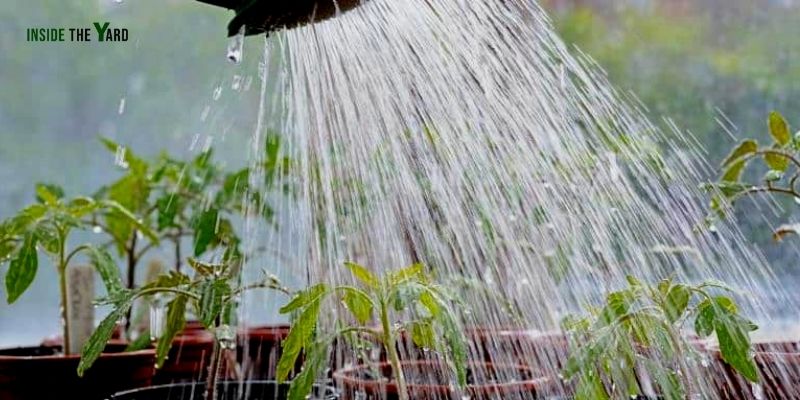
How do you soften hard water for plants? Though boiling is the most traditional way, adding some peat moss can be effective in this case. But do you know how and what portion to add?
Well, there is no black and white answer to this. Because excessive use of both can be harmful to plants, again, less use of both can not provide enough nutrients for your plant. So, it would be best if you had a balance of hard and soft water for your plants.
In this article, we will talk about the ways to soften hard water for plants. So, if you get hard water as your primary water source, you are at the right place.
How to Soften Hard Water for Plants? Ways and Processes
We already know that soft water is not so good for plants. But, here we are talking about softening very hard water to make it usable for plants. You can apply the below methods to soften hard water.
Boiling
Boiling is the primary way of softening hard water. In hard water, the elements stay as Hydrogen Calcium Carbonate Ion. When you boil the water, the ion splits up. Thus, some rough features evaporate and soften the water.
The same thing happens in the waterways like rivers, oceans, or streams. Even in there, the water is Hard Water when the water evaporates in heat that becomes softened. And in the form of rain, we get Soft Water.
Ion Exchange Resin
Ion Exchange Resin has a fixed anionic lattice balanced by positive Sodium ions. This resin is more like clay. When you pour hard water into the Ion Exchange Resin, the Calcium Ion gets stuck. And in exchange, the Sodium Ion gets out with water.
Thus, the water gets softened for use in plants. But remember, the column will fill with Calcium Ion at a particular time. So, you have to clean or reactivate it then. To clean, you have to add Sodium Chloride. Which is the highly concentrated salt solution. Thus, the resin will again get full of Sodium Ions. And you can reuse it to soften the Hard Water.
Alum
Alum is also another common way to soften water. It is basically used to clean water with dirt or other particles when it seems heavy. You can add some cubes of Alum into your water bucket. And after some time, you will see the dirt and water particles are stored in the bottom of the bucket.
The elements in Alum also have water softening components. So, you get clean, soft water to use for your plants.
Water Filter Pitcher
There are different kinds of water filter pitchers available in the market. You can get one of those and filter the water in the pitcher. Although, this seems to be a long process. But this is worth giving a try.
Some popular water filter pitcher products are Aquaphor Water Pitcher, Adagio Teas Gravity Water Filter, and MAVEA 1005772 Elemaris XL water filter pitcher.
Peat Moss
You can use Peat Moss to soften hard water. You can not directly use Peat Moss in your water storage. Firstly, you have to get organic Peat Moss. Put it in a Mesh Bag. Then take a bowl and water to it. Soak the Peat Moss in the water. Rest it for a while.
After some time
So, you can use the water for your plants now.
If you have an aquarium and grow water plants inside, you can do the same procedure to soften the water in the aquarium. Follow the same process, and this time put the strained Peat Moss bag in your aquarium filter.
Frequently Asked Questions (FAQs)
How do you make hard water soft water for plants?
You can make hard water soft to water your plants in many ways. Ion Exchange Resin, Alum, boiling water, and using peat moss are some of them.
Is it ok to water plants with hard water?
If the water is moderately hard, then it is ok to plant water with that. But if the water is too greasy and too hard, then you should not use it to water your plants.
What is the most common way to soften hard water?
The most common one is boiling the water. Boiling water eliminates and evaporates harmful particles from water. So, you can use the water for yourself, to drink and water your plants too.
Words To Conclude
Now, we have reached the end of the discussion of, how to soften hard water for pants? You can follow the above techniques to soften hard water. If the water is moderately hard, that won’t create many problems for your plants. But if the water is hard, you must soften it and use it on plants.
Excessive soft water is also not suitable for your plants. Because that will contain a high amount of Salt, that can cause harm to the leaves and roots of your plants.
